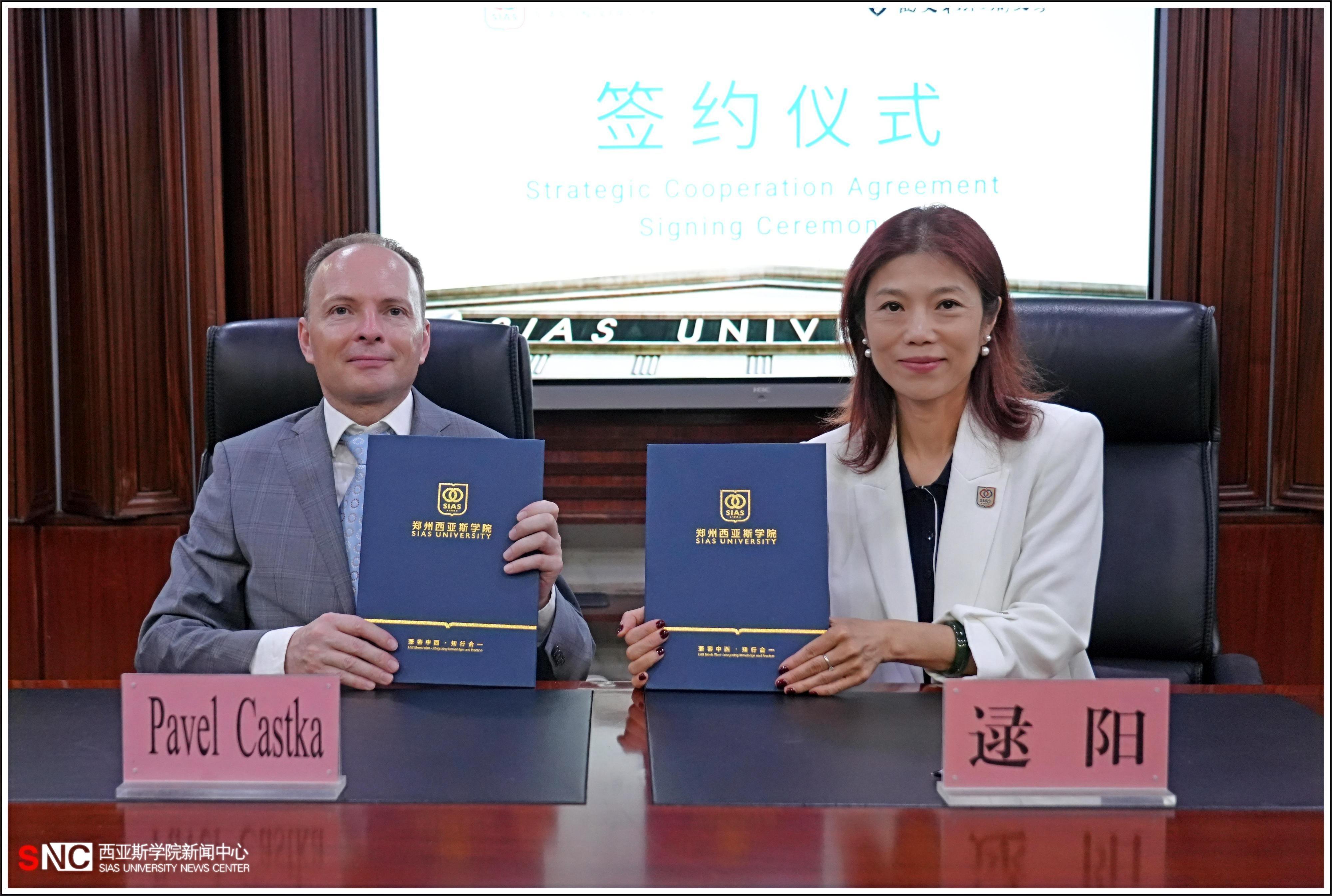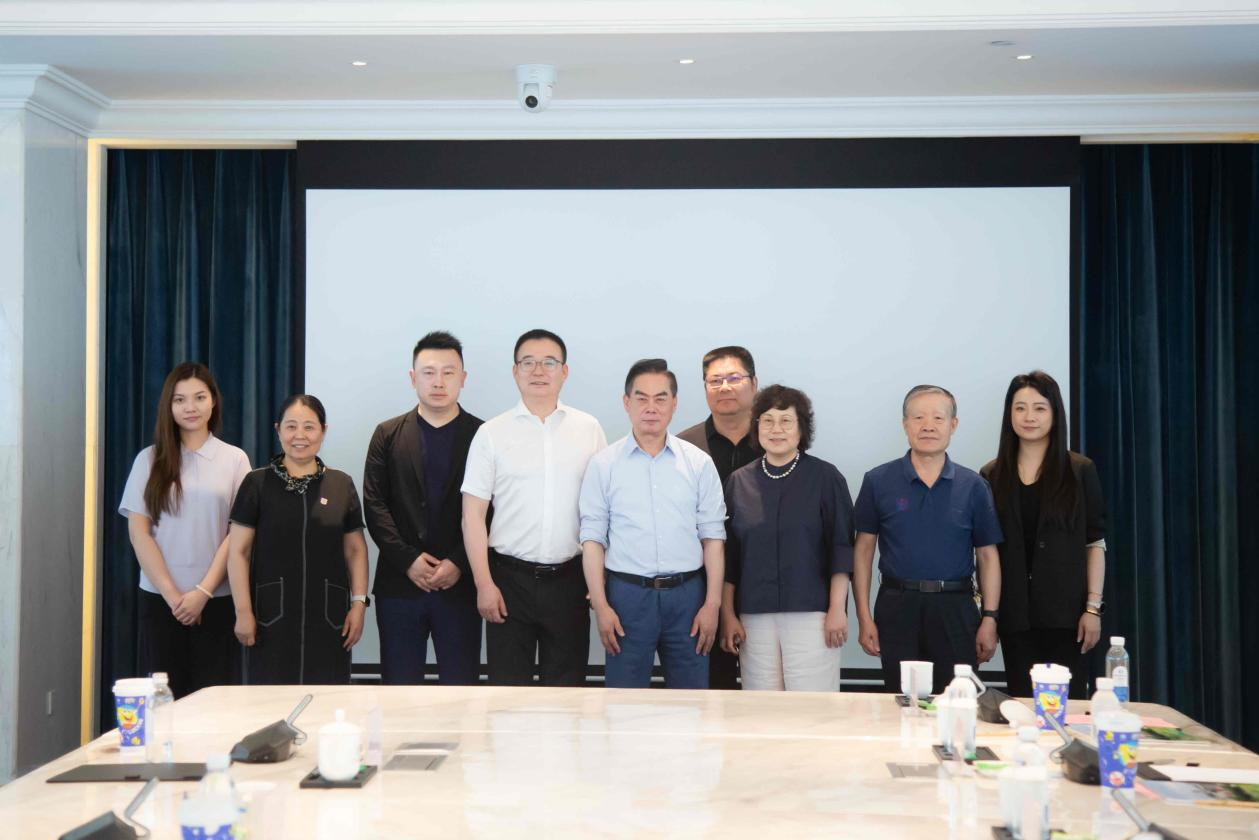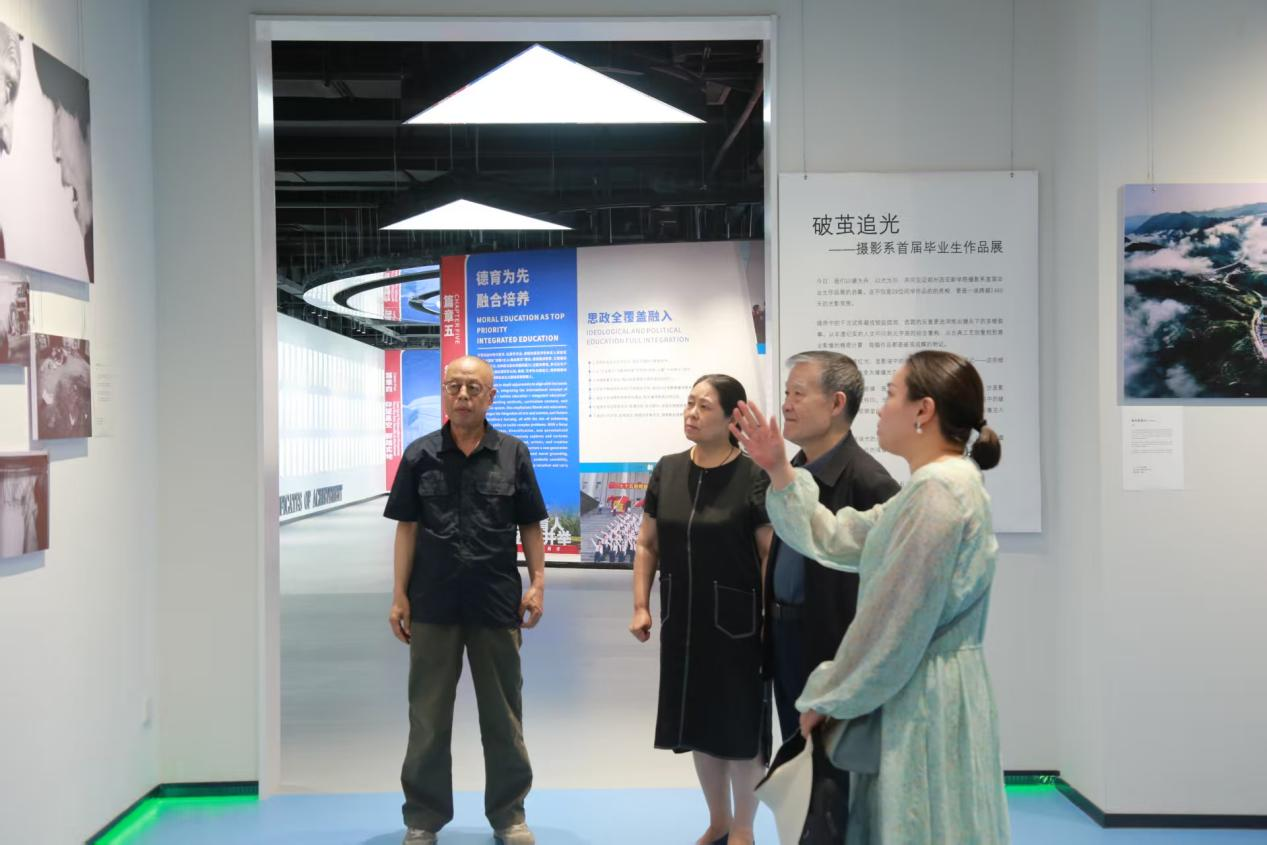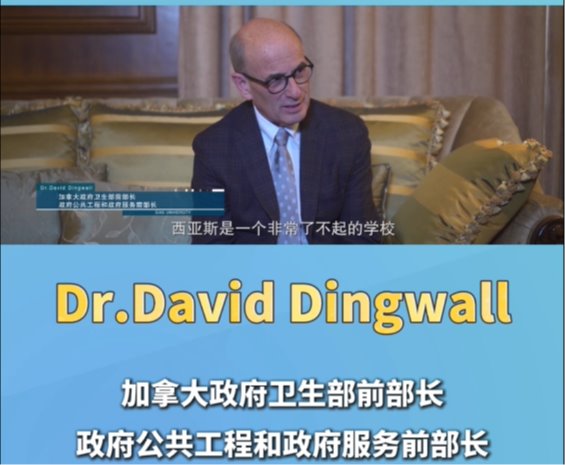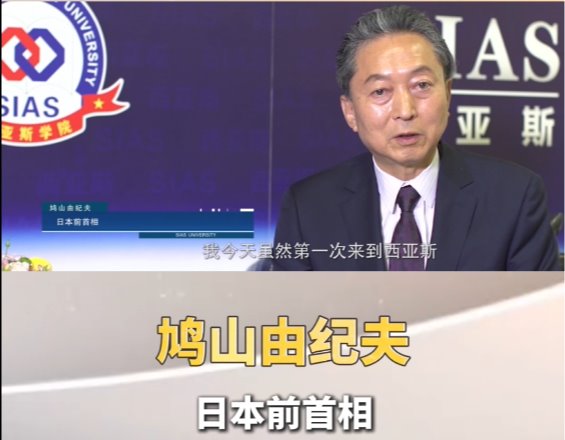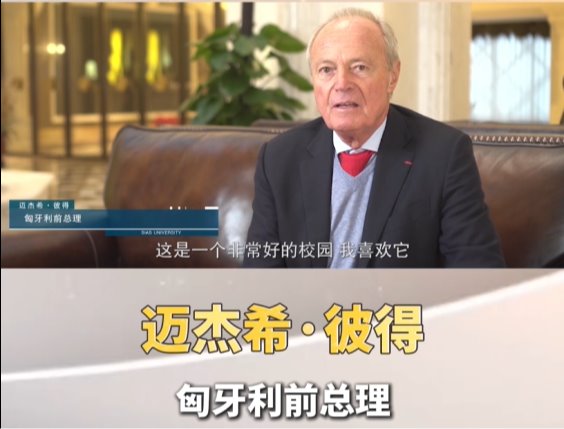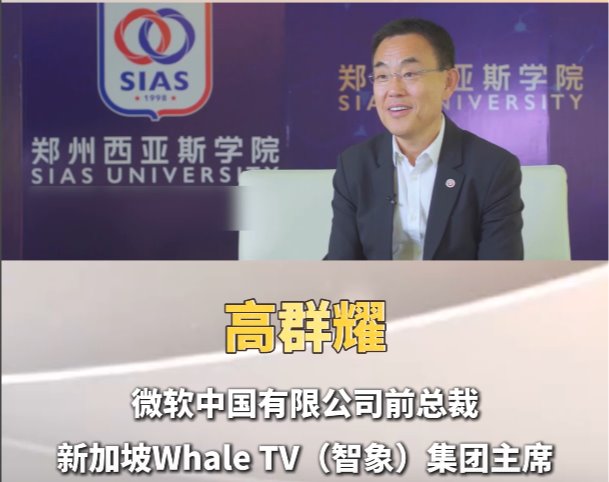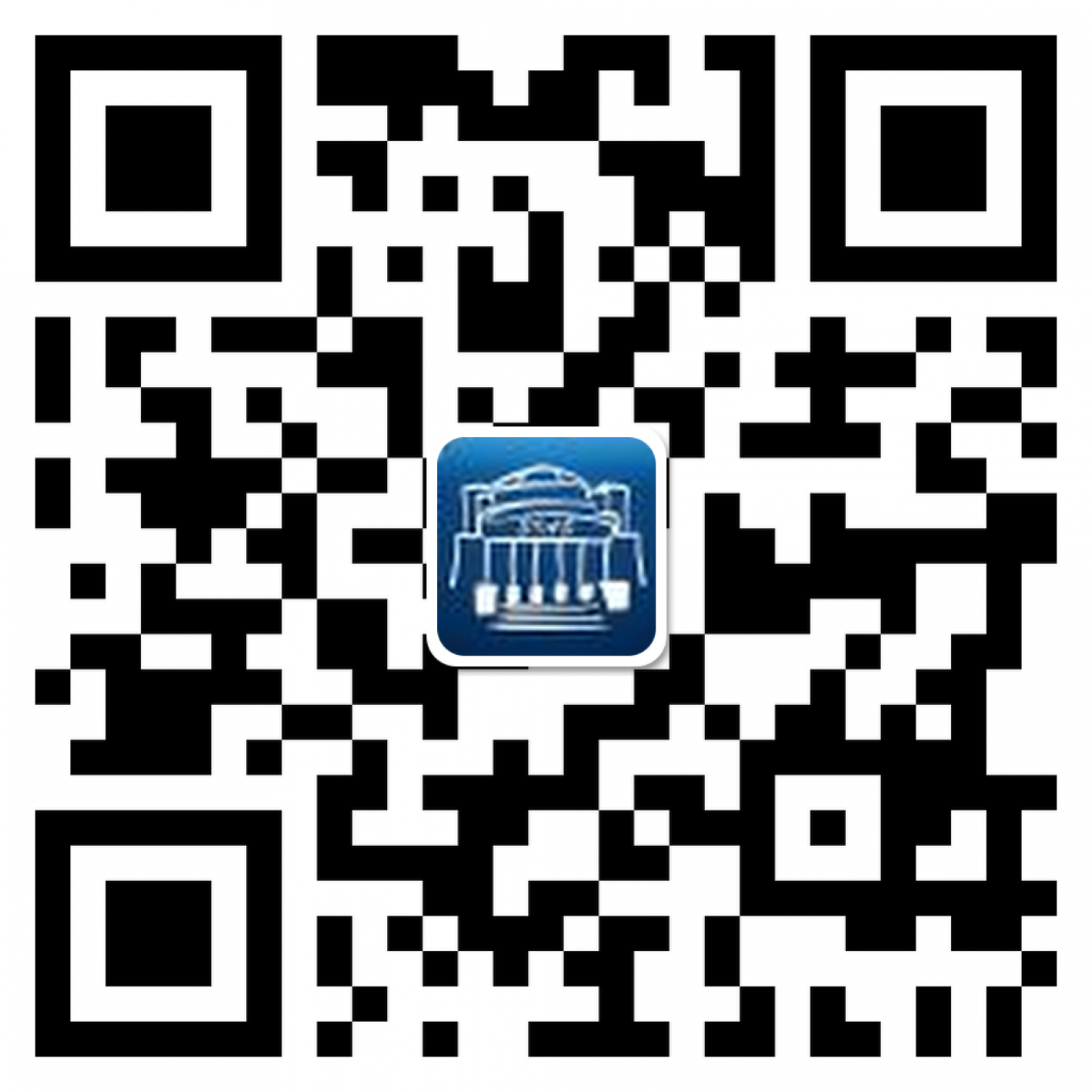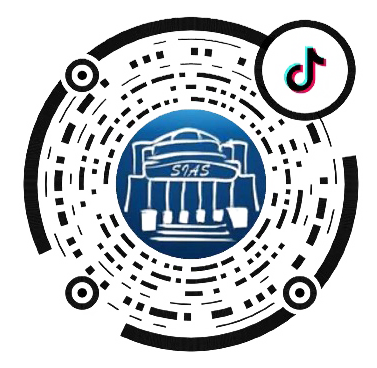The 2nd Joint AUAP (Association of Universities of Asia & the Pacific) - IAUP (International Association of University Presidents) International Conference opened at the Auditorium in Sias University's Library on May 24. This is the first time that these two major educational organizations have held a joint conference in China. The theme of the Conference was "Future Higher Education Model and Artificial Intelligence - Opportunities and Challenges" and it brought together over 200 university presidents, representatives, and international education experts from over 30 countries around the world. The Founder and Chairman of the Board of Sias, Dr. Shawn Chen, Party Secretary, Ma Jiansheng, Sias President, Chen Sikun, Executive President, Wang Jialin, Deputy Party Secretary, Li Huafeng, Vice President, Wu Hua, and Prof. Guo Junfeng, were all present at the Conference.
Dr. Chen welcomed the guests and thanked them for also coming to Sias University's 20th anniversary celebrations, later in the week. He said that Sias had made remarkable achievements in the past 20 years that were dependent on the support of the AUAP and the IAUP. Sias' educational philosophy and model of holistic education have been at the forefront of international education in Central China, and he said that he hoped that both international organizations would continue to support the development of Sias. He went on to introduce the theme of the conference, pointing out that in the era of rapid development in science and technology, higher education needed to pick up the pace and provide platforms to share ideas, resources, and development for the nurturing of international talents with leadership abilities that would provide valuable services for global economic and social development.
The Vice-Chairman of the U.S.-China Business Association, Colin Wu, delivered a speech and expressed his appreciation for the beauty and diversity of the Sias campus. He said that universities were the birthplace of ideas, and Sias was a vital place because Chinese and Western cultures met, exchanged ideas, and merged here. He said that he hoped that international educational organizations would respect cultural diversity, learn from each other, exchange ideas, share and help each other with development, and safeguard the transparency and fairness of education and information for the benefit of mankind.
The President of AUAP, Prof. Dr. Mahmoud Nili Ahmadabadi, spoke of the cooperative exchanges among member institutions of the Association of Universities of Asia & the Pacific (AUAP). He said that this was an era of coexistence, opportunities, and challenges, and members needed to work hand in hand to reshape the future of higher education. He advocated the use of scientific and technological innovation and artificial intelligence for the promotion and progress of education, as well as the building of effective network platforms to improve learning, efficiency, and service to the world. He also wished Sias University for its 20th anniversary.
The President of the IAUP, Dr. Kakha Shengelia, delivered a speech and congratulated Sias for its 20th anniversary. He emphasized the importance of cooperation and pointed out that Artificial Intelligence (AI) has already been used widely in various fields around the world. The development of education, he said, should meet the needs of economic and social development through innovation. He spoke of his appreciation of Sias' internationalized educational philosophy and hoped that those present would realize their responsibility to share information for the progress of higher education.
The President of Siam University in Thailand, Dr. Pornchai Mongkhonvanit, who is also a President Emeritus of the IAUP, said that international educational institutions, like the AUAP and IAUP, play an important role in the development of higher education. He said that as a model of international education, Sias had emphasized the importance of nurturing a students' cooperative spirit. He pointed out that the Conference had provided a platform for international educational exchanges and he hoped that universities and educational organizations would focus more on academic growth, communication and exchanges, innovation, solutions to social problems, and aim to achieve global sustainable development.
After the opening ceremony, world-renowned scholars and experts delivered keynote speeches on a variety of topics such as the latest knowledge theories, new in-depth modes of higher education, and the opportunities and challenges in the era of artificial intelligence.
The Executive President of Xi'an Jiaotong Liverpool University, Youmin Xi, delivered a speech titled "Educational Challenges and Strategies in the Age of Artificial Intelligence". He spoke of his experience at Xi'an Jiaotong Liverpool University, the strategies, and plans for reconstructing education and teaching with big data, and the creation of innovative ecology in universities.
The Director of the US-Asia Technology Management Center at Stanford University, Prof. Richard Dasher, presented Stanford University's plans and 2025 design ideas. He pointed out that innovation in higher education should be achieved through an open cycle, flipped learning, and objective learning.
The President and CEO of Sinovation Ventures, Kai-Fu Lee, an expert on Artificial Intelligence Engineering, shared his entrepreneurial experience and AI higher education development ideas with the audience through a video.
Member of the University of California Berkeley EEC (Electronic Engineering & Computer Science) Industry Advisory Board, and co-founder of Silicon Valley Future Academy, USA, Dr. Chenyang Xu, spoke about the development of Artificial Intelligence technology and its impact on human beings through practical data and case studies.
The Dean of Global Business at Rennes School of Business in France, Dr. Santiago Garcia Rodriguez, delivered a speech titled, "The Impact of Artificial Intelligence Technologies". He said that humans were the most important driving force to solve problems and that we should make good use of AI technology and constantly pursue scientific and technological innovation through education.
Kevin Brookhouser, a Google for Education Certified Trainer, and Microsoft Innovative Educator from the USA spoke on "How Artificial Intelligence Subverts Learning". He gave a series of examples to compare the differences between teaching through media and face-to-face teaching and said that educators should focus on nurturing students' autonomous learning abilities. In the future, artificial intelligence, he said, would have a profound impact on the role of teachers and the development of education.
The President of Innovation First International, Andy Lee, spoke on "Exploring Robots in Education", and shared on how to update university courses in the era of artificial intelligence, how to absorb fragmented information, and how university students can apply what they have learned.
After the keynote speeches, Dr. Shawn Chen chaired a panel discussion that included the President of California Baptist University, Dr. Ronald Ellis, the President of San Diego State University, Dr. Adela de la Torre, the President of CETYS University in Mexico, Dr. Fernando Leon Garcia, and the Vice Provost of the University of Arizona, Dr. Brent White. Professors and experts in the field of education took part in academic discussions based on future models of higher education and the opportunities and challenges of artificial intelligence. The panel spoke of how teachers at universities, and students, were the basis for the development of AI, and they should take a risk in their bid for change, dare to innovate, and integrate new technologies into all aspects of education.
After the panel discussion, leaders of several Chinese and foreign universities had open exchanges in the lobby of the first floor of the Library. This was followed by a large cooperative signing ceremony for MoUs.






